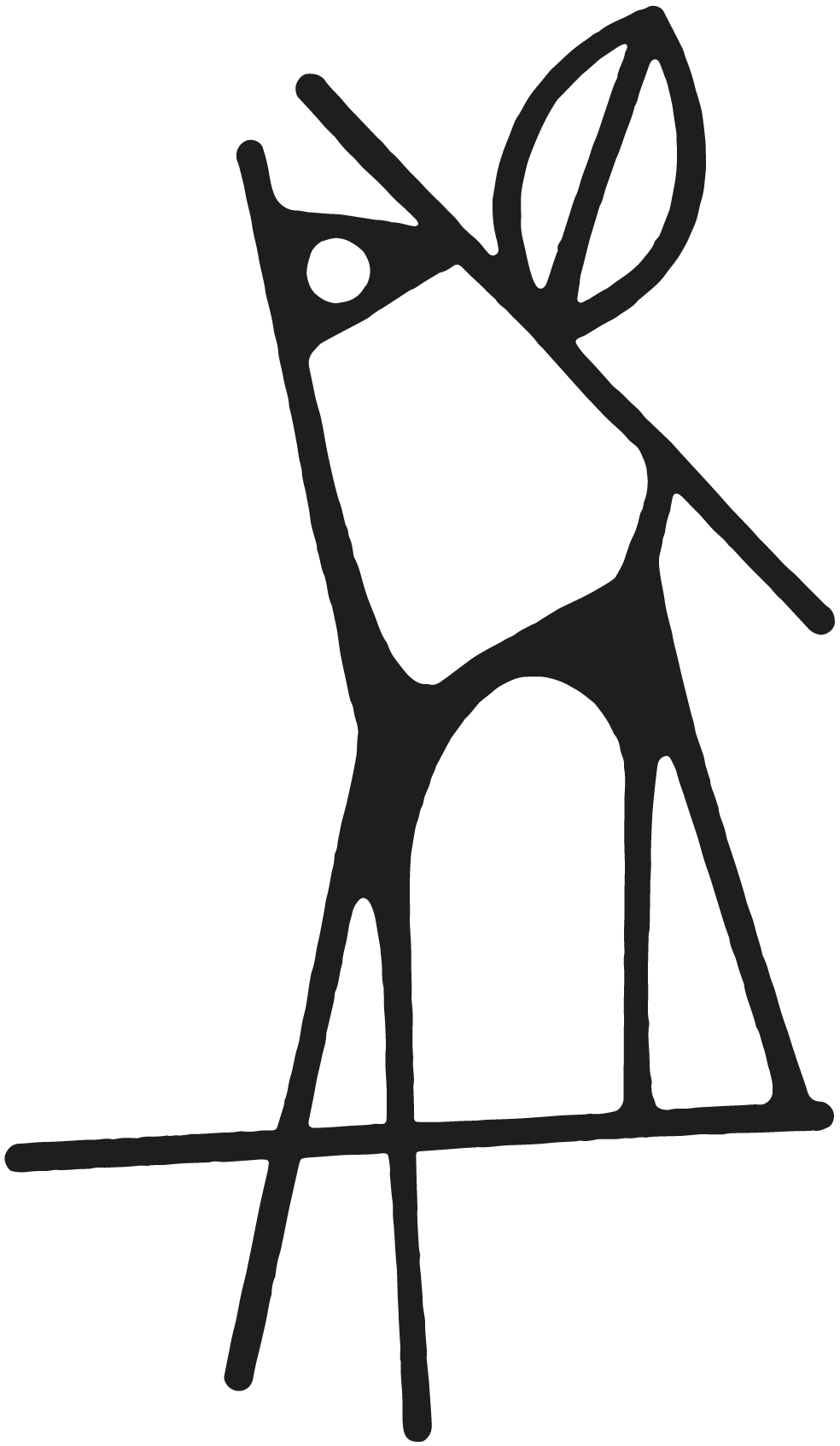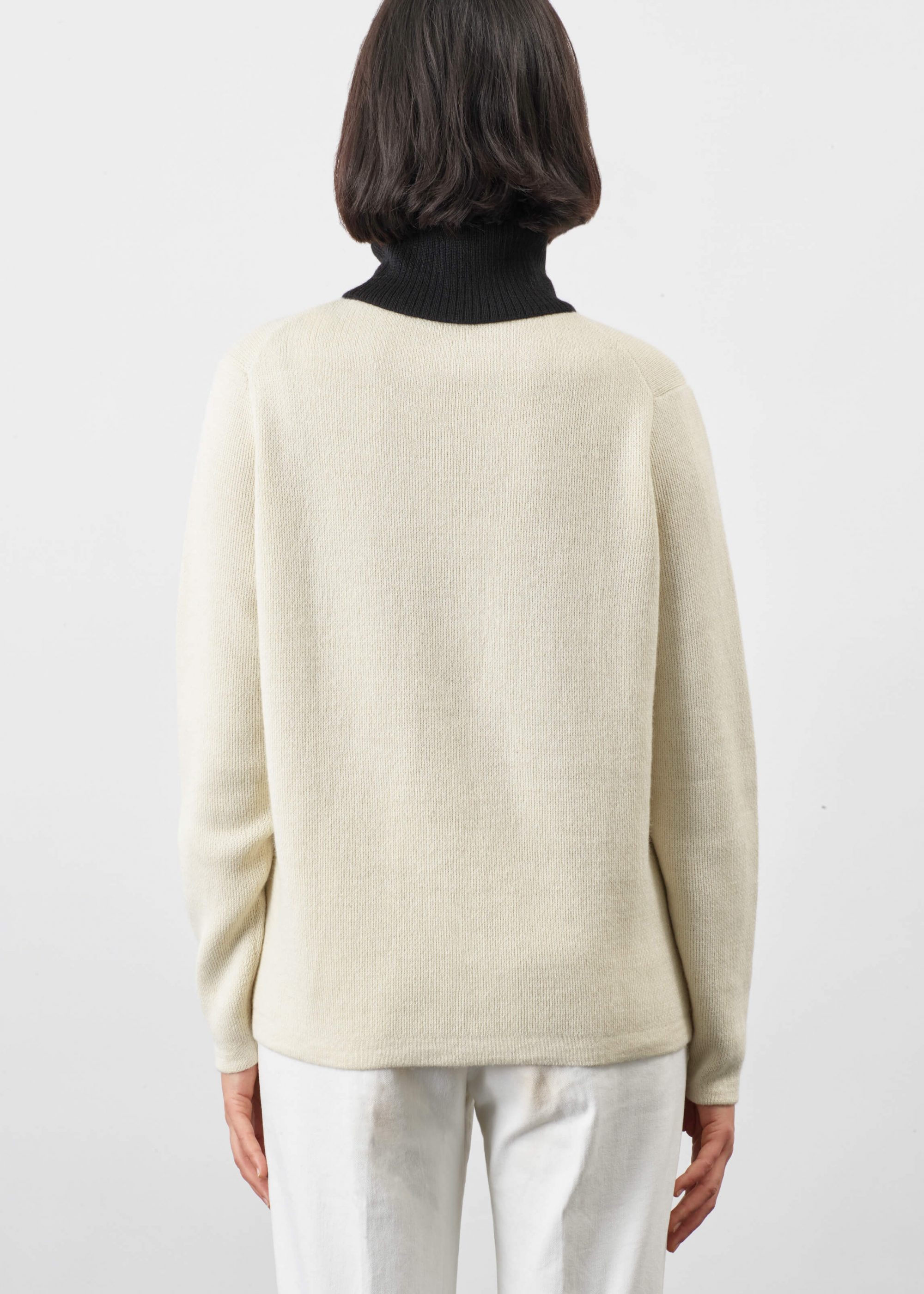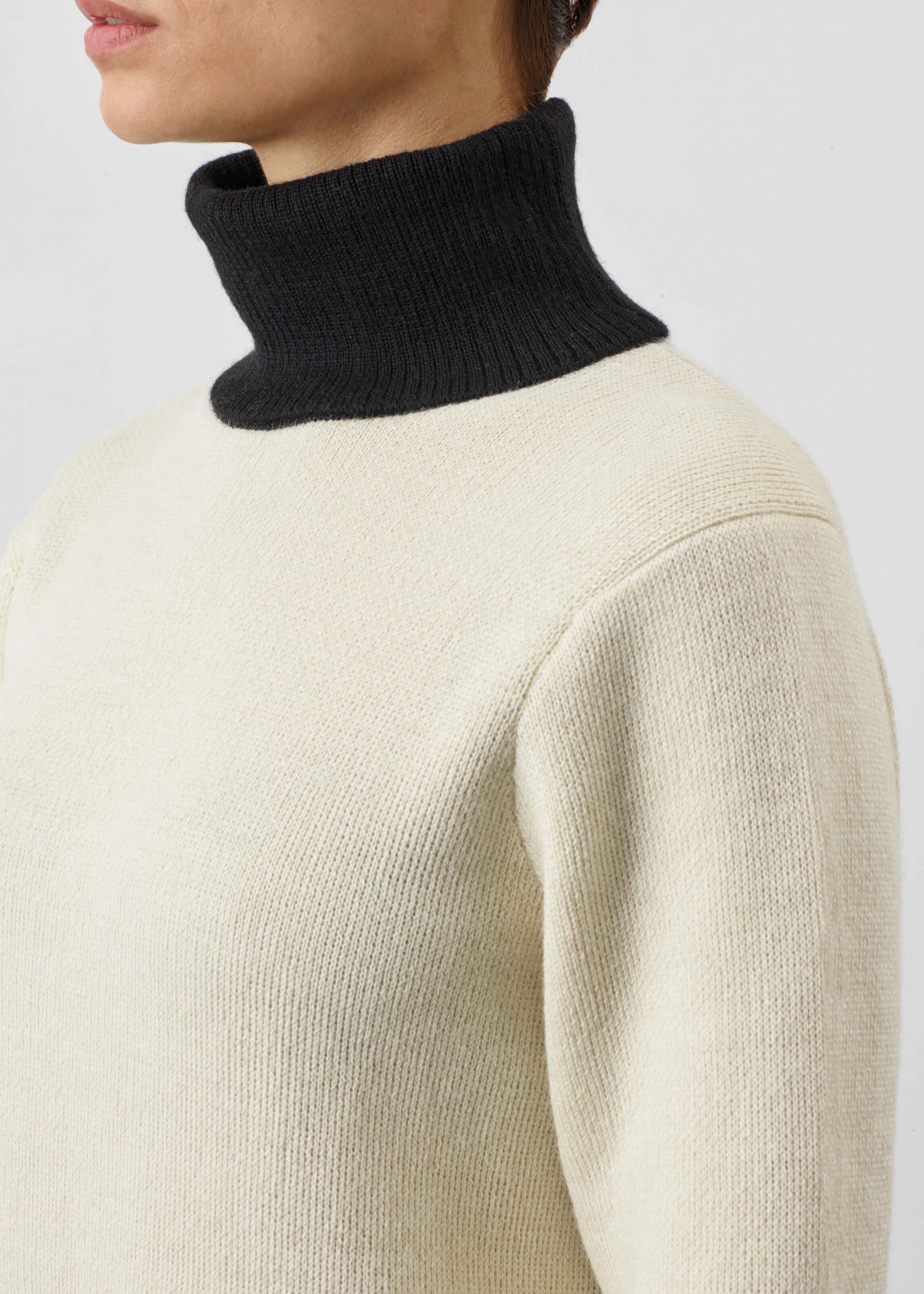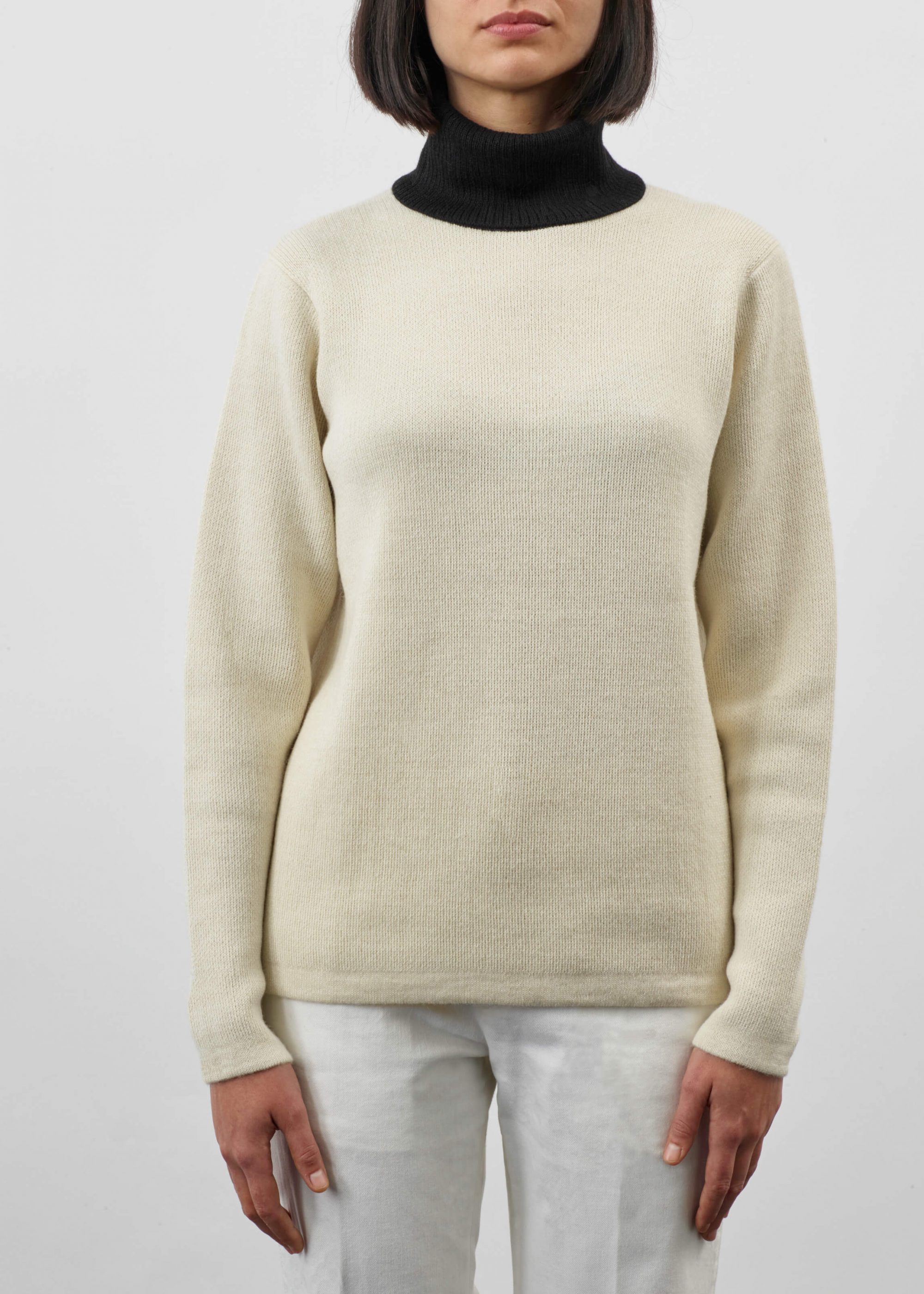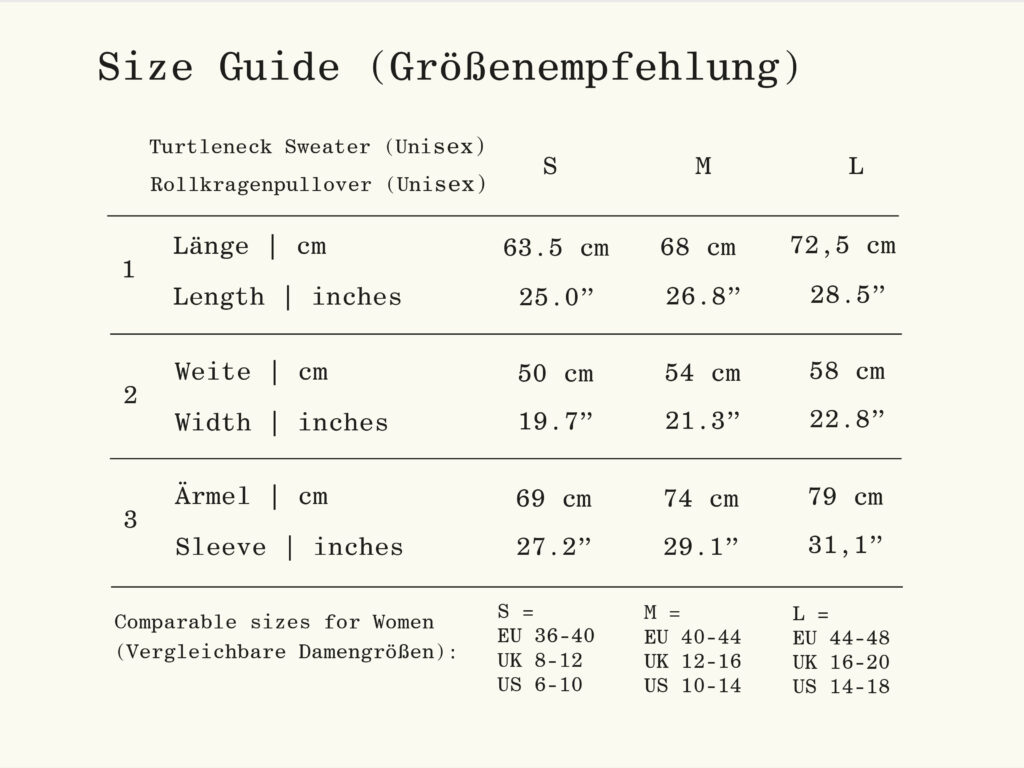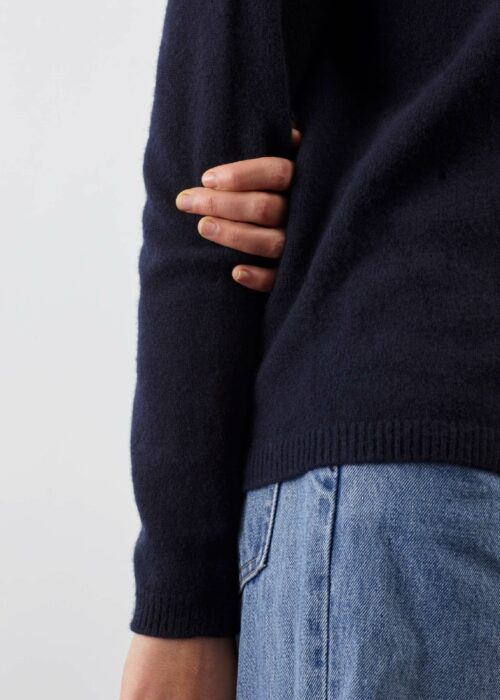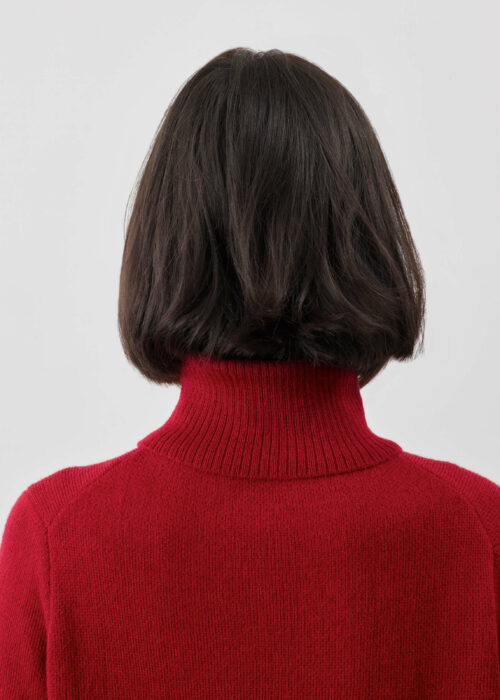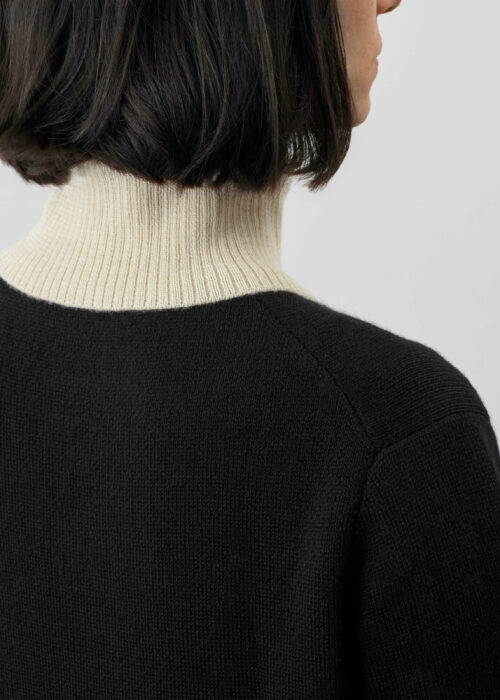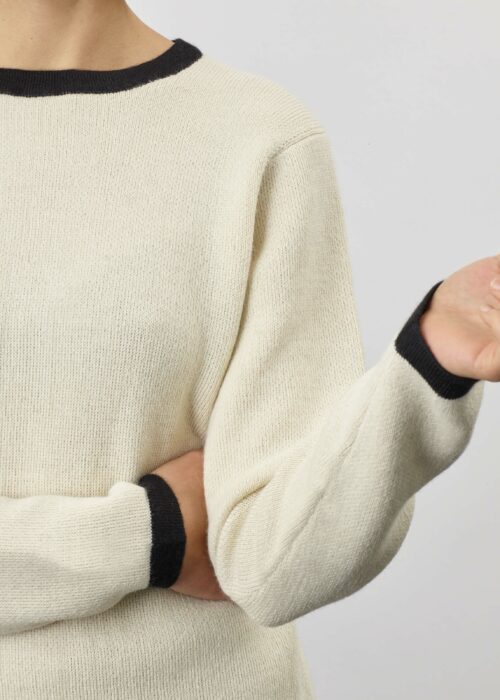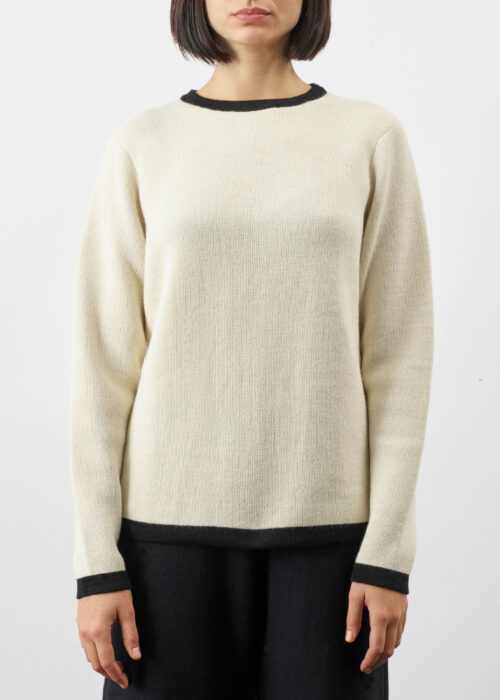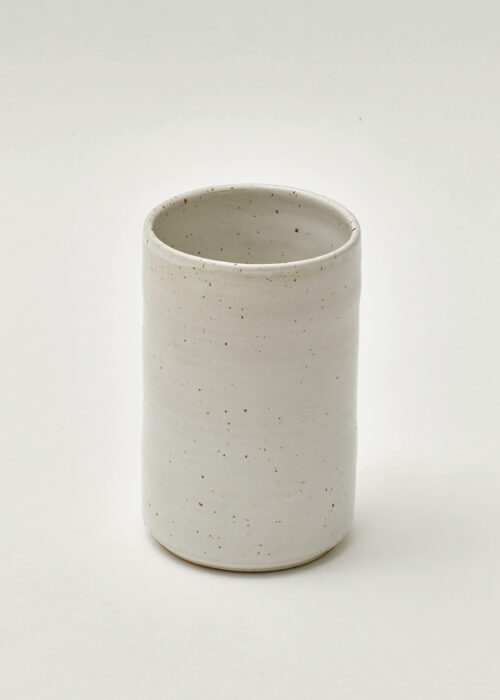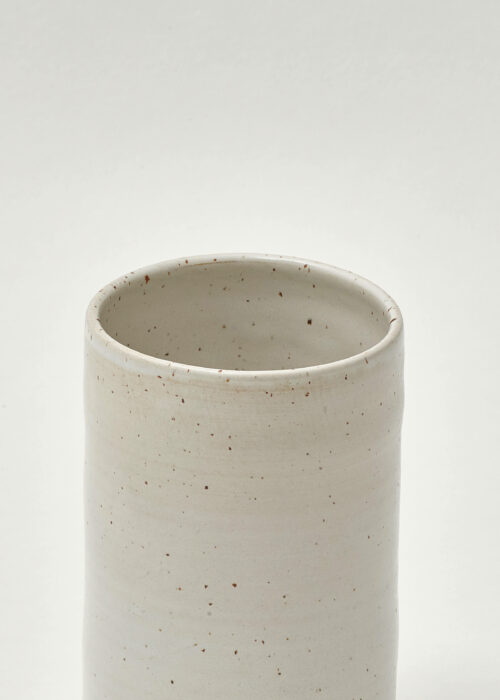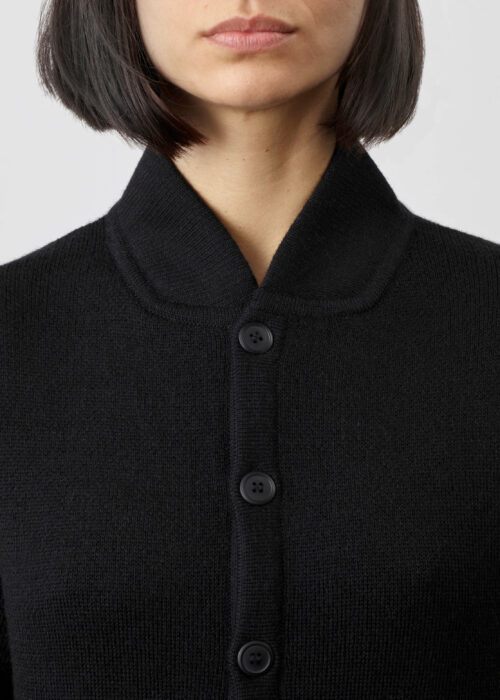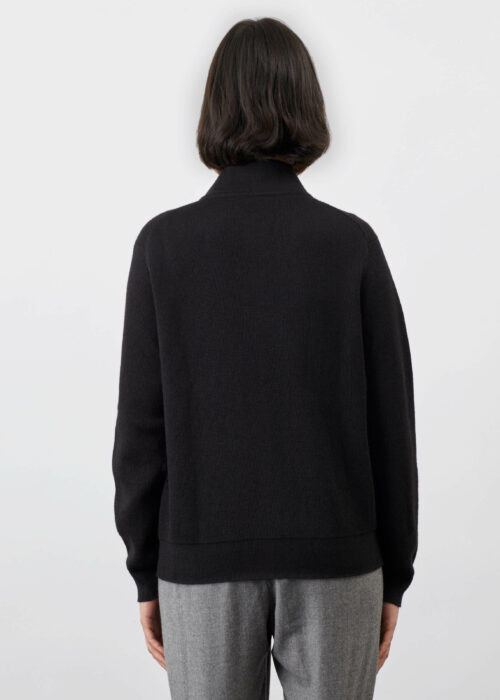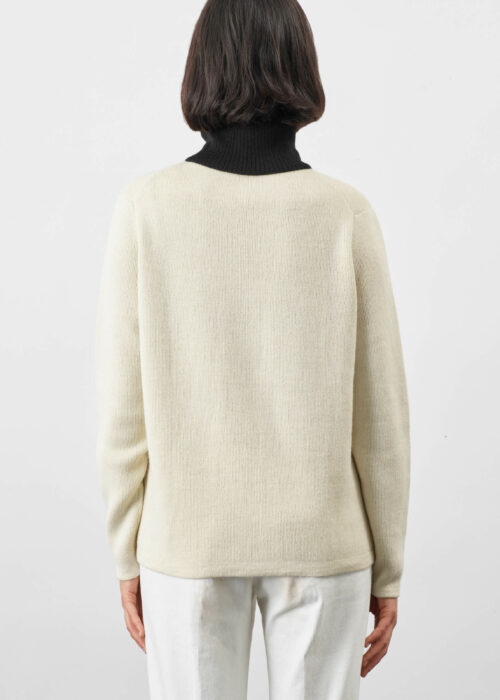
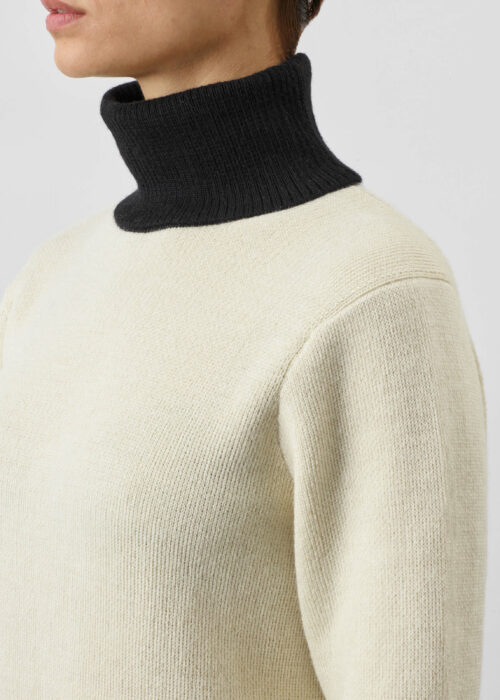
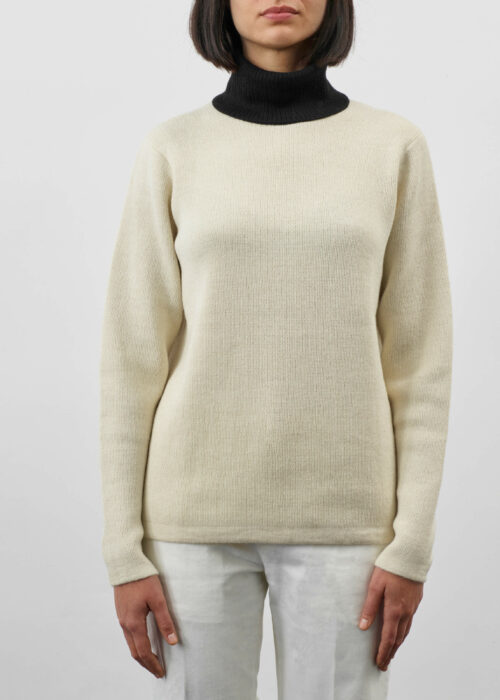
»Atman« Polo-Neck Sweater Baby Alpaca
N° CKB2
Made in Peru
Description
REH (GERMANY)'s »Atman« women's polo-neck sweater in ecru features a contrasting black turtleneck. It's crafted from naturally stretchy 100% baby alpaca fine rib knit, providing allergy-friendly and thermoregulating comfort. Translated from Sanskrit, »Atman« means »breath of life«, representing the (absolute) self, the indestructible, eternal essence of spirit, often referred to as the »soul«. The black-and-white contrast symbolises our dualistic thinking and explores the idea of a synthesis, a third dimension of being.
Details
- Contrasting rib knit turtleneck in Black
- Regular French seam sleeves
- Natural elasticity through jersey knit
- Thermoregulating
- Allergy-friendly
Material Characteristics
Special Features of Alpaca Fibres
- THERMOREGULATING
Breathable alpaca fibres not only protect against UV rays, but they also regulate temperature. This means that the body temperature of around 37°C is maintained consistently at any external temperature, whether cold or warm. With an alpaca sweater, you’ll neither be too hot nor too cold.
- ALLERGY-FRIENDLY
Alpaca has a long and smooth fibre and protein structure, containing very little wool fat (lanolin). These two characteristics make alpaca allergy-friendly (hypoallergenic), as the smooth fibre repels dirt and moisture.
Special Features of our High-Quality Knitwear
- NATURAL
Compared to many other alpaca products on the market, our knitwear is made from 100% pure alpaca or baby alpaca, without any added synthetic fibres. Natural fibres are healthier for the body, more breathable, and regulate warmth and moisture.
- MADE-TO-LAST
The weight, raw material, material texture, and the processing method determine the durable quality of knitwear. Common sweaters are rarely made from entirely natural fibres, and they often weigh less than 200 grams with an average yarn cost of approximately €13.00/kg.
REH (GERMANY)’s Alpaca sweaters are 100% natural and weigh 600 grams with a cost of €63.00/kg. In addition, the fair small-batch production of natural, high-quality, and long-lasting knitwear inevitably leads to much higher production costs.
- SUSTAINABLE
We aim for our Alpaca knitwear to become your lifelong companion, which is why they are characterised by a unique, high-quality standard. Our Alpaca knitwear is not only biodegradable but also energy-efficient. Since they remain odour-neutral for a very long time, they often require little to no washing. In many cases, simply treating the knitwear with hot iron steam or hanging it in the bathroom or by the window during a shower will suffice.
Difference between Baby Alpaca and Alpaca
Alpaca is similar in softness to cashmere, possesses the durability of synthetic fibres, and is therefore more hardwearing than both cashmere and sheep’s wool:
- BABY ALPACA
The term “Baby Alpaca” refers to the first shearing of a young alpaca, as well as the fine, downy undercoat of an adult alpaca. It is important to emphasise that Baby Alpaca is not obtained from small baby alpacas. The fibre has a diameter of 22 micrometres or less. Therefore, Baby Alpaca falls into the category of the rarest and finest types of wool.
Baby Alpaca has a soft, smooth, silky, and durable natural fibre that is neither itchy nor scratchy on the skin.
- ALPACA
“Strong Alpaca” describes medium-fine alpaca fibres with a diameter of less than 36 micrometres. Its texture is smooth and soft, though not quite as silky as Baby Alpaca. One notable advantage of 100% Alpaca is that the fibres from older animals are longer and stronger, making the knitted material more resilient and less prone to pilling, resulting in a longer lifespan.
The fibres from older alpacas are not quite as silky-soft, but they are still pleasant on the skin.
All Product Materials
MAIN FABRIC:
100% Alpaca (Baby)
BRAND LABEL:
100% Organic Cotton
CARE LABEL:
100% Cotton
CARE GUIDE CARD:
100% Natural Cardpaper
PRODUCT BOX & BAG:
100% Recycled Cardboard
PACKAGING:
100% Recycled Paper
Care
To ensure the longevity of our 100% natural alpaca knitwear, please follow these easy care instructions:
Avoid Washing
- Alpaca knitwear naturally neutralises odours, so washing is not necessary.
- Instead: Steam or steam iron the alpaca knitwear regularly
- Air by the window
- Hang in a steamy bathroom
- Place it in the freezer
- Use Organic Dry Cleaning Services
If Washing is required
- Hand or machine wash with cold water (30°C).
- Use organic Wool Detergent
- Lay flat to dry
- Avoid wringing
- Do not tumble dry
Stain & Pilling Removal
- Use Organic Dry Cleaning Services
- To treat stains, gently spot clean using palm oil free curd soap/ vegan gall soap and a damp cloth.
- Note: It’s important to thoroughly rinse out all the soap residue using water and a clean cloth, as any remaining soap can potentially cause additional stains
- Pilling refers to the formation of fiber nodules on the textile surface, typically occurring in areas with friction, such as where the arms touch the upper body or on the lower back. It takes a long time and a lot of friction for pilling to form on alpaca knits. Compared to finer Baby Alpaca knits, 100% alpaca is much less prone to pilling. It’s recommended not to use a pilling shaver too frequently.
Storage
- We recommend storing this knit piece flat or folded over the crossbar of a hanger
- The sweater is delivered in a storage box, which can be optionally used for storing
Repair
- Avoid sharp edges and velcro fasteners to prevent threads from being pulled
- If a thread is pulled, you can use our knitwear repair needle, in order to easily pull back the yarn to the back side of the knit piece or towards the interspace of the reversible knitwear
Size Guide
- The model is wearing size S. The corresponding womenswear size ranges from EU EU 36-40, UK 8-12, US 6-10
- Although the sweater is free of elastane, the 100% natural jersey rib knit technique provides extra elasticity, compared to the jacquard and reversible doubleface knitwear.
- Thanks to its natural elasticity, the sweater can expand by up to 1.0 cm, therefore you may opt for one size smaller.
To find the right size, please measure your own sweater and compare the measurements:
- Place your sweater on a smooth, even surface.
- For both length and width measurements, ensure that they are taken from the highest and widest sections of the sweater while it remains flat.
- To measure the sleeve (3) and sweater length (1), start from where the neckline band begins and measure down to the end of the sleeve hem.
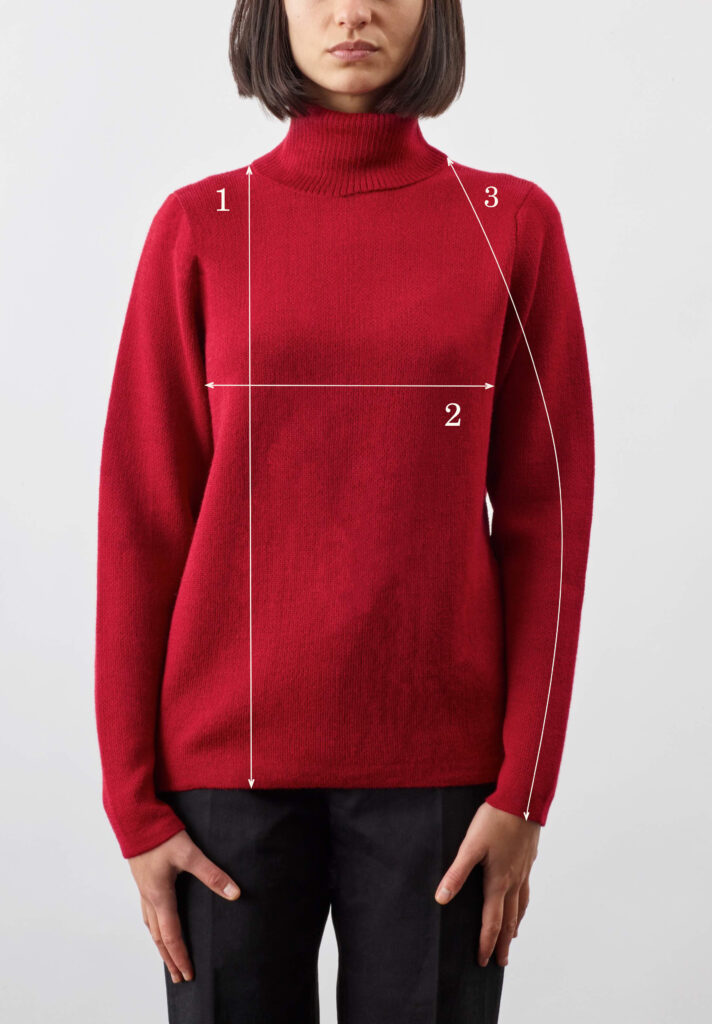
Note: Slight variations are rare, but they can occur due to production tolerances.
Philanthropy
Inspired by AYUDAME Kinderhilfswerk Arequipa e.V.’s willingness to help, for every knitwear piece you purchase exceeding a value of 200€, we will donate 5€ to the non-profit organisation AYUDAME Children’s Aid Arequipa e.V. at the end of each year.
The gross price includes a customer donation of 2,50€, with the remaining 2,50€ being contributed by REH (GERMANY).
Read more about the Project
Other colours
249 €
incl. VAT plus Shipping Costs
